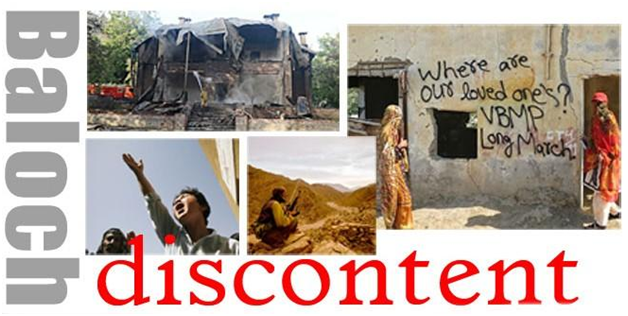Women Of Balochistan: Beaten But Not Defeated

NEW DELHI: "Nomads crossing the desert with their camels; dark-skinned women dressed in bright colours (rarely under a burqa) and children cleaning the characteristic dark blue Baloch carpets in the Helmand river . . . These are some of the images one associates with the Baloch," observes Daulat Popal, history professor at Kabul University. But, according to the Pashtun scholar, there is much more to these forgotten people than romantic and colorful clichés.
Enforced disappearances, arbitrary detentions, torture and extra-judicial killings build a daily threat to the lives of the Baloch people and women, as always in conflict, are the worst sufferers. In Balochistan’s traditionally patriarchal society, women regularly face discrimination, assaults, and murder in the name of “honor.” The practice of so-called honor killings drew global attention in 2008, when three teenage girls were buried alive in Balochistan’s Nasirabad district. According to media reports, the girls were taken to remote areas of Nasirabad by the brother of a tribal notable, where they were shot and then buried while still alive.
There have been ceaseless acid attacks, rapes, kidnapping, killing of women of Balochistan. The menacing minds behind these attacks want to frighten the Baloch women so that they don’t dare to come out of their homes for education, protests or even for their rights within and outside the home. Because of extreme poverty in the rural areas, women are treated as animals and servants here. Strict restrictions have been put on the girls who are not allowed to go to college and university.
This combined with illiteracy and growing radicalization has compounded the woes of women. The Pakistan Health Demographic Survey (PHDS) reports that Balochistan leads the nation in maternal mortality, with 785 deaths for every 100,000 women, compared to 272 in the rest of the country.
Despite the suppression Baloch women have made their place, in history and in contemporary Balochistan as well. Farzana Majeed’s recent brave march is a negation of the notion that Baloch society is completely male dominated. She has come up as a symbol of struggle for Baloch missing persons.
Historically, Bibi Banari, Chief of the Baloch tribes, led the battalion of tribal army in war against Delhi in late 15th century. Similarly, Bibi Bano the daughter of Mir Ahmad Khan, Bibi Beebo the sister of Khan Mir Ahmad Khan, Khan of Kalat (1666-1696), and Bibi Roz Khatoon the wife of Malik Deenar Khan Gichki, ruler of Makran were noble ladies and took part in wars.
Another well known Baloch activist is Baloch Republican Party Women’s Wing Organizer Banuk Horan Baloch. Banuk Horan founded the Woman’s Wing of BRP in 2012 and has quickly gained a great deal of support. Banuk Horan Baloch has participated in countless demonstrations and protests against Pakistan’s relentless military attacks upon the citizens of Balochistan. In April 2013 target killers attempted to assassinate Banuk Horan Baloch. Despite the violent attempt on her life, Banuk continued her struggle to generate awareness about the severe human rights abuses being perpetrated by forces in Balochistan. In addition to organizing and holding protests, Banuk Horan continues to appeal to international human rights organizations.
Banuk Farzana Majeed and Banuk Karima Baloch are but two examples of an entire nation of strong bold women who have constantly faced untold suffering and severe inequality. These two Baloch women have set an example for all of us; they have shown us their bold determination and endurance in the face of extreme difficult times. Despite harsh realities; today’s Baloch women have never gave up hope, they are bravely standing at the front lines of the Baloch struggle for freedom with firm resolve.



